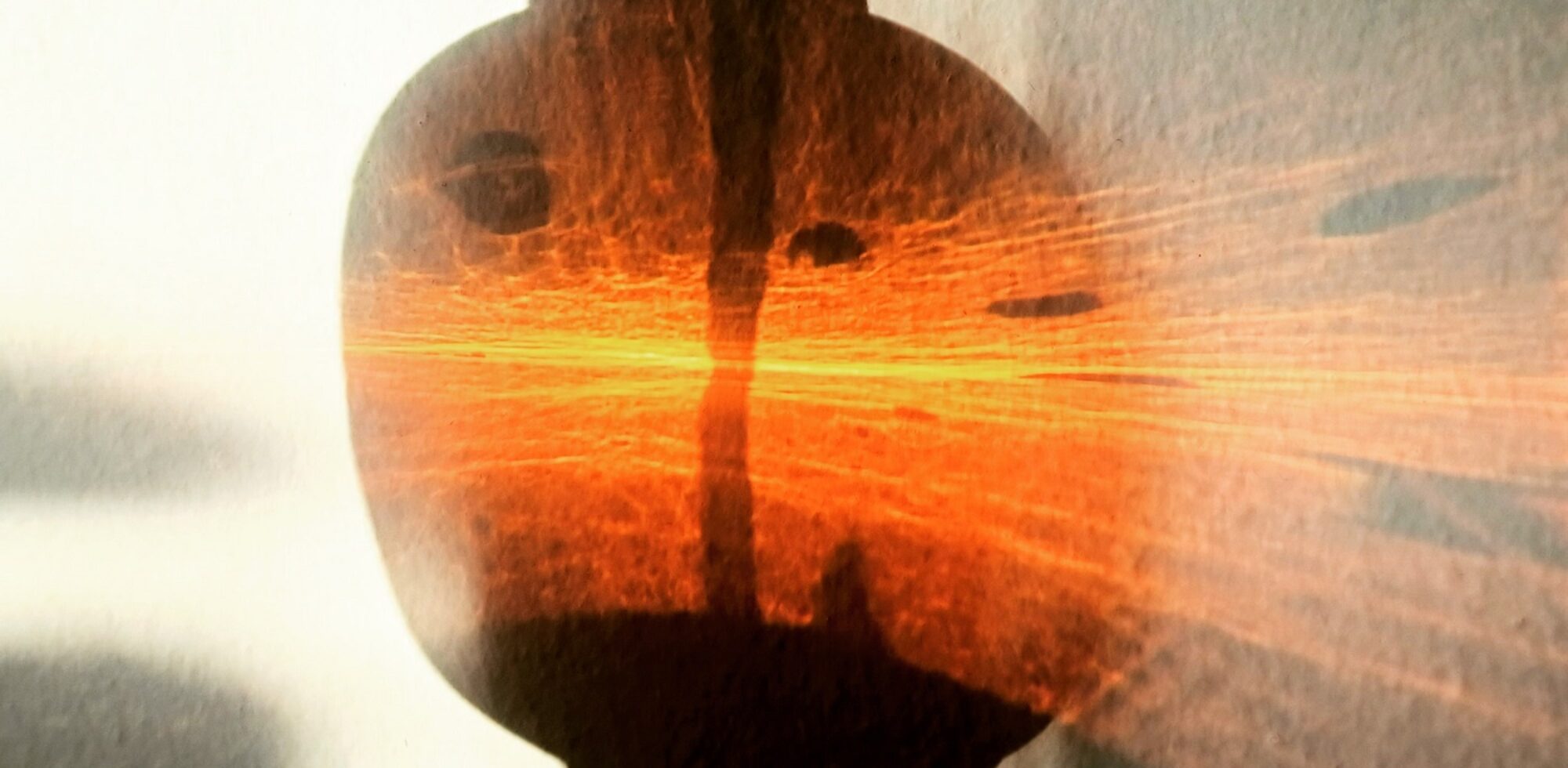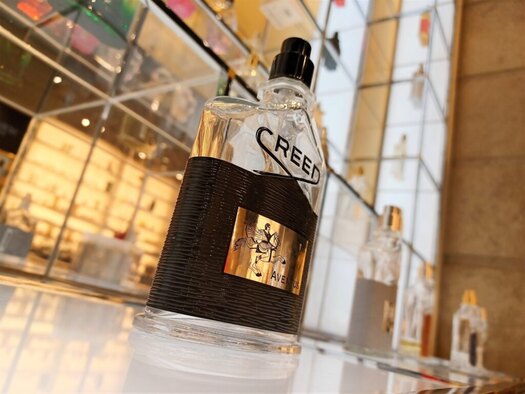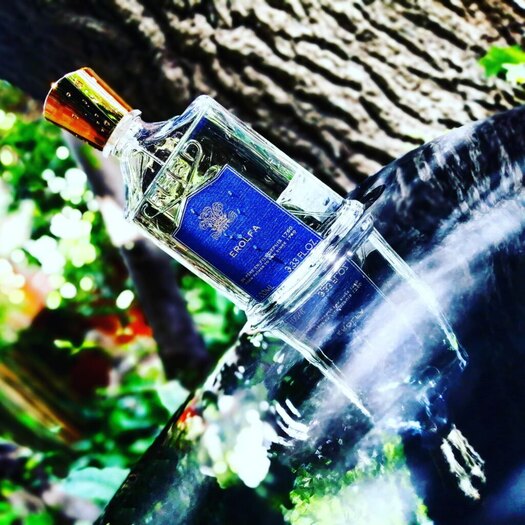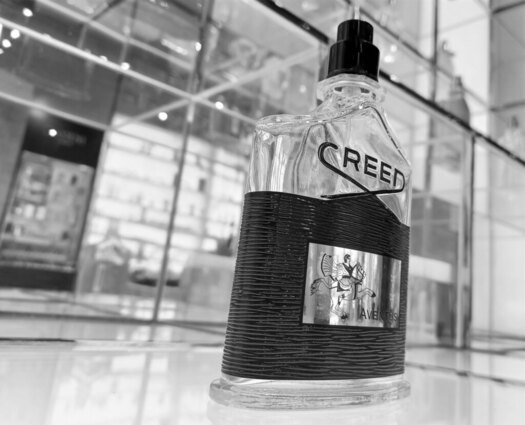Every now and then, a book comes along that changes your perspective of an industry and some of the players within it. The Ghost Perfumer: Creed, Lies, & The Scent of the Century by Gabe Oppenheim (Solicitude) is that kind of read.
In a punchy and page-turning style with well-researched detail, Gabe Oppenheim gives credence to the rumours that have been swirling for years on online forums regarding Creed’s claims that the niche fragrance house has been producing fragrances since 1760 and for an impressive array of celebrities and dignitaries along the way, including King Alfonso XIII of Spain and Cary Grant.
But more importantly, the writer reveals how Olivier Creed, heir to the Creed clothing business, passed off many high-profile Creed releases as his own creations by taking advantage of the insecurities of a trio of perfumers.
Most of The Ghost Perfumer tells the story of Pierre Bourdon, creator of classics such as Yves Saint Laurent Kouros EDT, Davidoff Cool Water EDT, Montblanc Individuel EDT and Frédéric Malle French Lover EDP. And now acknowledged as the master behind several Creeds, including Fleurs de Bulgarie EDP, Green Irish Tweed EDP, Erolfa EDP, Millésime Impérial EDP, Silver Mountain Water EDP, Spring Flower EDP and Original Santal EDP.
And what of Creed Aventus, “the scent of the century”? Jean-Christophe Hérault gets long-last recognition for being the true talent behind this decade-defining and much-copied perfume. Julien Rasquinet also gets credit for creating Creed Royal Oud EDP and Creed Fleurs de Gardenia EDP, among others. Both these perfumers were students of Pierre Bourdon, which just adds to the intricacies and intrigues of the intertwined narratives explored by Gabe Oppenheim.
In what could have been a mere hatchet-job on a nasty character, Gabe Oppenheim places the behaviour of Olivier Creed and Pierre Bourdon in the context of an industry that’s built on fantasy, obfuscation and sometimes questionable business practises (for example, the rampant cloning of successful scents).
In this interview he chats about how The Ghost Perfumer come about, the workings of the industry and meeting Pierre Bourdon.
You’re known as a contributor to various magazines and author of books. How was this Creed project different to your other writing projects?
In many ways, it felt very similar – when I covered boxing, there was always a narrative that promoters were trying to push about their fighters, about upcoming match-ups. This was often hype that had very little relation to the reality of the boxer’s preparation or the event itself.
And so it struck me as kind of familiar when I saw that in the scent industry, the stories told about the supposed perfumers and their inspirations were generally cant and utterly apart from the truth of how fragrance is created.
“The Ghost Perfumer was different from some of my sports coverage because there’s a degree of truth in sports that the arts just cannot provide.”
That said, The Ghost Perfumer different from some of my sports coverage because there’s a degree of truth in sports that the arts just cannot provide. A baseball score, barring any cheating, is an objective measure of who was better on the day. A knockout is unimpeachably the triumph of one combatant over another.
And yet in fragrance, even compositions that win briefs can’t necessarily be said to be better formulas than those that lost. A scent wins in the eyes of an evaluator or creative director. Or even in a panel test. But all those judgments are subjective, and runner-up scents can end up on the market under another name and prove themselves superior to those frags they lost to in an initial brief.
Was there a particular event that sparked this project?
A lot of events. I was tired of covering combat sport, generally, and I was curious about the creators of scents. I had actually interviewed the duo behind the Imaginary Authors brand while I was still working on the fights. I wore their A City on Fire scent to Jay-Z’s office building once, back when his company was really trying to build up a boxing promotion.
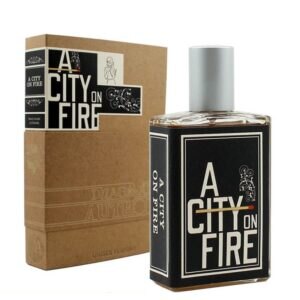
But perhaps the final trigger was this zest I had for packing a new fragrance every time I travelled around the world to cover a fight. I was wearing these fascinating scents on press row in arenas the world over. And by 2019, I realised I was being somewhat myopic – why not figure out who had concocted these potions and why and what they were like beyond their laboratory orgues?
I knew there was good nonfiction to be found there, even if I didn’t yet have a clue as to what focus a book might take.
What were your thoughts on Creed fragrances before you started the book? Were you aware of the rumours about the dates of the releases and their supposed celebrity wearers?
I’d always found the celebrity claims a little preposterous. And I’d always liked the scents very much – I wore Green Irish Tweed, Bois du Portugal, Royal Oud and Aventus regularly. Over time I took a liking to Viking. I’d tried Tabarome and found it lacking as a tobacco scent.
I think the only info I had about the reality of their creation was what Michael Edwards and Luca Turin had discovered prior to my breaking into the field – that somehow Pierre Bourdon had had a hand in making Green Irish Tweed. But that was all I knew.
And so I just kept trying to reach out to Bourdon, despite his self-imposed exile from Parisian perfumer society and resultant residence up in Normandy. It’s why Pierre should get so much credit for my own reportage – if he hadn’t decided one day, many months into the project, to open up to me, I may not have dug too deeply into just how Creed had ostensibly generated those aforementioned scents I so enjoyed wearing.
What were you most surprised to discover in your research?
That Pierre Bourdon’s compensation for creating Creed’s scents consisted almost entirely (if not entirely-entirely) of bespoke suits from Olivier.
“Pierre Bourdon’s compensation for creating Creed’s scents consisted almost entirely (if not entirely-entirely) of bespoke suits from Olivier.”
What has the official Creed response been to the book since publication?
The new management team that BlackRock [the private equity fund which bought a majority stake in Creed in 2020] installed, a c-suite based in London, was so kind to me when I reached out to them pre-publication, particularly the head of marketing, Giles Gordon. We had a brief email correspondence during which Giles first offered to help me with my research and later retracted the offer, but my impression was that the company wanted to be authentic to its actual roots and not just fantasy.
And whether I forced Giles’ hand or not, that assessment has been born out – Creed has published two large magazine volumes since The Ghost Perfumer’s release that update the Creed family’s tale, align it with my own – the first said Olivier began trying to make the haberdashery into a perfumery beginning with fits and starts in the 1960s and the second revised the dates to the 1970s.
Which is truthful: the Creeds were not in the business of fragrance creation before then – and until Pierre became ghost-writer in the early 1980s, Creed’s small-batch scents were insignificant efforts, secondary to tailoring, and retailed primarily in small nooks, like the perfume shop Soleil d’Or in Lille, France.
“Until Pierre became ghost-writer in the early 1980s, Creed’s small-batch scents were insignificant efforts, secondary to tailoring.”
When I finished the book, I envisioned public smashings of Creed fragrances. But that’s just me being childish. What was your intention with it?
Oh, gosh, I had no such vision. I still own Creed scents. I had no intent except to tell a remarkable story – of a man who owned a company and desperately wanted to be a perfumer and of the diffident genius he used to unfairly snatch that mantle.
I wanted people to be fascinated by the interaction of Olivier and Pierre’s careers. A boycott of the company resembling Disco Demolition night was never a consideration for me.
Olivier Creed comes across as, let’s be frank, quite predatorial and a nasty piece of work. Did you approach him for comment? And did you ever have any doubts about your characterisation of him?
I approached Creed’s North American arm early in 2020 and they wouldn’t let me speak to Olivier; tentatively, they scheduled me to talk to Erwin [his son] instead. I figured if I did pose real questions to Erwin, however, I might prove my seriousness as a journalist and earn some time with Olivier.
However, someone rather rude in the Creed North America office cancelled my Erwin email-chat last minute, and after that, no matter who I asked at Creed about talking to Olivier or getting clarification on his actual status as a “perfumer” I got no response at all.
“No matter who I asked at Creed about talking to Olivier or getting clarification on his actual status as a ‘perfumer’ I got no response at all.”
Partly, I don’t think the company, prior to its takeover by BlackRock, believed I had the cojones or skill to depict the company’s actual workings. And after the takeover, I think those newly in charge felt the revelations were inevitable but didn’t want to hasten their release.
The book isn’t only an exposé of Creed, it also reveals the workings of the industry and its incestuous nature. How did you get people to talk to you about what really goes on behind the scenes?
I wrote long and impassioned emails about the need for perfume folks and general readers to get a better sense of who actually formulated the scents they so loved (and sometimes deplored).
It took a long time to convince perfumers – International Fragrance & Flavours didn’t okay my interviews with their folks for many, many months, before Judith Gross [Vice-President Communication & Branding, Scent], whom I love, ultimately realized I was quite serious about creative nonfiction and not just a shill or a parasite.
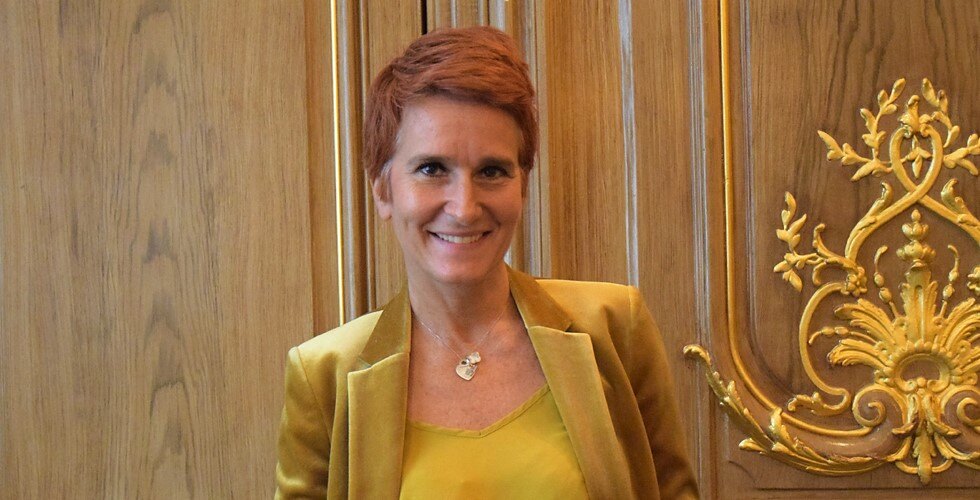
And once I had access, I just pressed the perfumers to tell me what they were like, how they had gotten into the business, what they did in their free time. I wanted them to know I saw them as full humans, as artisans of the highest order whose stories could hold as much fascination as painters’ or musicians’ or boxers’.
Still, there are perfumers whose entourages still never let me get close enough to prove any of that – [Jacques] Cavallier, [Alberto] Morillas, [Michel] Almairac. Those are perhaps the top three who didn’t care for such an examination by this American interloper (or maybe Almairac’s son Benjamin never even put the request to his Pops – dunno quite why that never came together).
The part where you meet Pierre Bourdon at his home is particularly touching. Although he was certainly exploited by Oliver Creed, you’re careful not to paint him as a hapless victim…
Bourdon doesn’t view himself as a victim, really. The man got to practice an art whose ideas and concepts he treasures. Maybe he always detested some of the business practices. But the man took his love of Proust and applied the author’s passion for creation – for showing the work of creation in the creation itself – to perfumery. What could have satisfied such a scholarly and thoughtful reader more?

How did you earn Pierre Bourdon’s trust to get him to reveal so much to you?
Through many emails sent to the address he shared with his wife, Kathy, who always seemed to think me a decent sort – but really, through the imploring of Jean-Claude Ellena, who convinced Pierre first that I was serious about my own craft, writing, and could perhaps do justice to Pierre’s.
Let’s talk about Jean-Christophe Hérault and his role in the creation of the mega-hit Creed Aventus. He was very forthcoming at first and then the shutters came down. Why the change in behaviour?
Probably a sense that he had revealed enough to hurt his career and didn’t want to exacerbate things further – I say, probably, because Hérault might dismiss that without offering a better answer.

Regardless, he seems glad now that The Ghost Perfumer was written, that he’s being credited finally with the massive success he engineered. We text each other every now and again, and we’re certainly on friendly terms, for which I’m grateful. He has a signed copy of the book, and I own a good deal of his fragrant output. He has been nothing but kind to me of late.
I don’t blame him for not quite getting at first that my intentions, in terms of attributing work to its rightful creators, were more pure than not, and that I had the gumption to follow this process through to the end.
You also delve into the Julien Rasquinet creations that were passed off as Olivier Creed’s. Did he actually create any of the other Creed releases that are attributed to him on sites such as Fragrantica?
Olivier was a great creative director – he knew what sort of scent would beguile men (or, at least, he picked up in the 1960s and 1970s these notions). So Olivier can be credited with choosing the best scents, mostly, of those perfumers who did the actual technical work.
Olivier, however, not doing that technical work, cannot fairly be called a perfumer-creator, the definition of which perfumers such as [Christophe] Laudamiel and Calice Becker make rather clear not infrequently. I admire their devotion to getting the bylines in this messy industry cleaned up.
The subtitle of the book is Part 1: Creed, Lies, & The Scent of the Century. What’s the next one about?
The next one could involve a certain Berlin-based perfumer who’s a masterful raconteur and a well-known figure to the fragcomm. But it could also be about the pirates of the Dubai clone market or the bizarre way in which Caron has survived several strange owners (it’s now a property of a Rothschild).
Or perhaps it will be about none of these things. I’ve made a good many false starts in the last few months. But they aren’t all for naught – at least one will hopefully become a full-length book.

And I would tell perfume-prose fans, if you like my nonfiction, I think you’ll like my inventions, too – and in fact, I’ve been working also on a novel and perhaps that will come out in between perfume-focused books, first. I’ve written about 4 000 compelling words so far for that project. Maybe I’ll never see it to the end, but for now, I’m just thinking, 96 000 equally satisfying words to go…
The Ghost Perfumer: Creed, Lies, & The Scent of the Century is available worldwide on Amazon.

